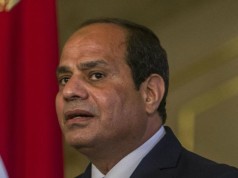
February 6, 2018
The Committee to Protect Journalists Tuesday called on Egyptian authorities to ensure that the public has easy access to a full range of news and information sources in the lead-up to presidential elections scheduled for next month.
CPJ said that since February 3, a number of news outlets, including The New York Times, The Washington Post, and CNN, have been inaccessible to mobile users in Egypt, according to Mohamed al-Taher, a researcher at the Cairo-based the Association of Freedom of Thought and Expression (AFTE), and news reports.
Al-Taher and the privately-owned news site Mada Masr reported that the sites are unavailable because the government has blocked access to a Google-affiliated publishing tool, Accelerated Mobile Pages (AMP), which accelerates content delivery between publishers and mobile users. The websites are still accessible on desktop, al-Taher wrote on social media.
A Google spokesperson told CPJ that the company is aware of the problem, and has “decided to suspend directing users in Egypt to Google AMP [pages] while [they] look into the issue.” The spokesperson did not directly address CPJ’s question about the problem’s cause.
CPJ said that the Egyptian National Telecom Regulatory Authority (NRTA), which oversees internet and telecommunication regulation, did not respond to CPJ’s email requesting comment.
“Freedom of the press is essential to any election process,” CPJ’s Middle East and North Africa Program Coordinator Sherif Mansour said from Washington D.C. “The Egyptian government should immediately take steps to ensure that all news websites and internet tools and services are available to citizens seeking to get and share information.”
CPJ stressed that ahead of presidential elections scheduled between March 26 and 28, the government has been keen to silence any critical reporting, according to a CPJ research. Authorities have used emergency measures, which were imposed in April 2017 after dozens were killed in an attack on two churches, to censor media outlets and publications, bring “false news” charges against journalists who contradict official statements, refer civilians to military trial, and hold journalists in pretrial detention indefinitely.
According to an AFTE report, a cabinet committee tasked with locating and seizing Muslim Brotherhood assets in 2016 ordered the NRTA to block 33 websites of newspapers and news channels.
And since May 2017, Egyptian authorities have blocked at least 496 websites of news outlets, blogs, human rights organizations, and circumvention tools used to bypass the blocks, according to the AFTE and the U.S. based Open Observatory of Network Interference. The state-owned Middle East News Agency reported that unspecified officials on May 24 ordered internet service providers to block access to 21 news websites that allegedly supported terrorism or reported “false news.”
News websites, including Mada Masr and the U.K.-based New Arab, said that, prior to the recent interference with AMP, they had used the proxy-based publishing tool as an alternative platform since their websites were blocked.




